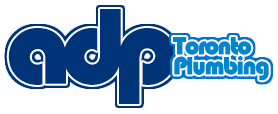Finally, in a long-awaited and much-needed move, the province is cracking down on those aggressive salespeople who come to your door insisting on doing an inspection of your hot water heater. A recent article in the Toronto Star reports that the Minister of Consumer Services has announced a plan to help protect consumers from these scams, saying that the complaints about them are “second only to collection agencies.”
If you’ve ever had them come to your home (and let’s face it, who hasn’t) you’ll know what she means. They arrive at any time of the day or evening, claiming to be from your existing water heater supplier and wanting to see your heater. Then they tell you your equipment is in need of an upgrade because it’s in “dangerous condition.” If you’re in the fortunate position that it’s recently been replaced by your plumbing contractor in Toronto then you’ll know it’s a scam as soon as you hear that, but for someone who has an older model that’s working fine, it can be quite alarming to hear – and entirely believable. Sometimes they aren’t even legitimate sellers – just con artists looking for a way to get inside your home or to separate you from your money.
Here are some Do’s and Don’ts for homeowners to follow when these people knock on your door:
Before Letting Them In:
- Demand identification. A large number of Toronto homes use hot water heaters rented from companies such as Direct Energy, which states clearly that it will never send out a representative unless you request one. If they can’t produce identification showing that they work for a reputable hot water heater company or plumbing contractor in Toronto, don’t let them in at all.
- Ask for promo materials. Someone casing your place for future criminal opportunities won’t have any to show you or will have just one or two copies that they pretend are their own. If they show reluctance to produce a marketing brochure, that’s your cue to send them packing – fast!
Once They Enter:
- Don’t show them your contract, monthly account or personal identification. Identity theft is rampant in Canada, and the last thing you need is to find you own a mortgage on a home you didn’t buy. This type of fraud is common, and it takes years – and many dollars – to clear your name and your credit rating after someone else runs up huge bills in your name.
- Call the police. If you believe the person at your door is an imposter, or if you allowed them to enter your home and now you have doubts and they refuse to leave, call 911 to get law enforcement officers to help you get rid of them.
When You Buy:
- Don’t sign anything! If you believe the salesperson is legit and you actually want to buy the hot water heater option they are selling, it’s still important to take the time to read the contract thoroughly before signing. Ask them to leave it with you for 24 hours. If they won’t, that’s another sure sign that all is not as it should be.
- Look for the phrase that says under Ontario’s Consumer Protection Act you can cancel within 10 days without incurring a penalty. If that doesn’t appear, don’t sign because it means the seller can take legal action against you if you change your mind.
After They’ve Sold You:
- Get a second opinion. Just as you do if a doctor gives you unwelcome news, get verification from an independent, professional plumbing contractor in Toronto if anyone tells you your hot water heater is at risk.
- Keep your money! Don’t make any form of payment to the person at your door, even if you have purchased a hot water heater and you believe it’s legitimate. With the current hype around this issue, reputable companies will be happy to provide you with a printed invoice showing their company name and registration number, after which you can post them a cheque or make an online payment. Alternatively, pay them once the new hot water heater has been professionally installed and commissioned.
- Make a complaint. If you find you’ve been scammed you can submit a complaint to the Homeowner Protection Centre, which will liaise with the supplier as well as send it to the provincial consumer ministry.

